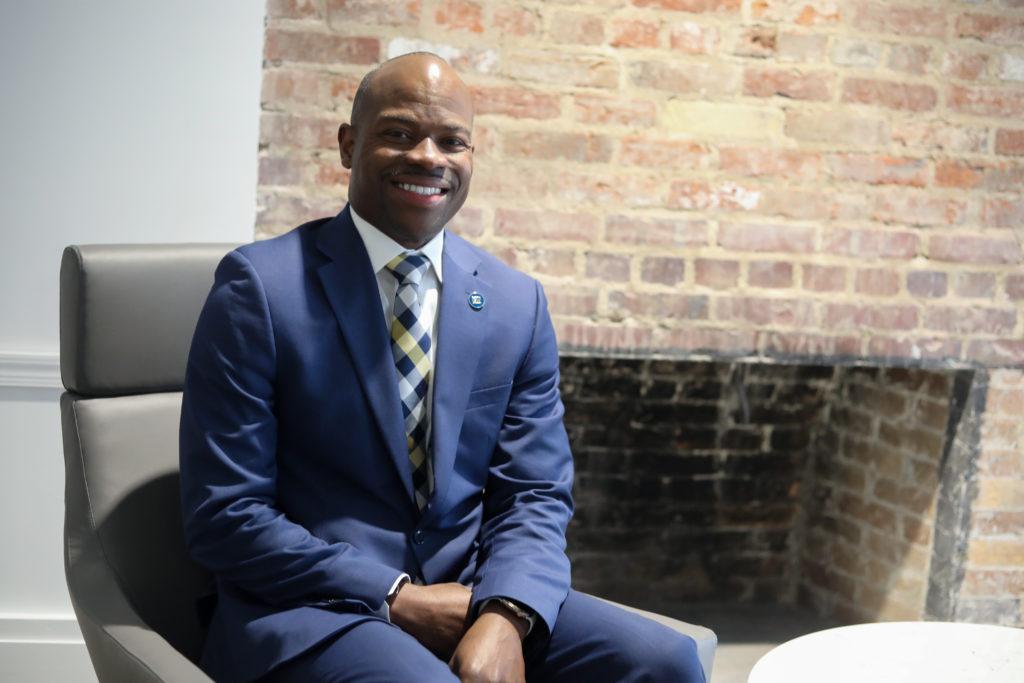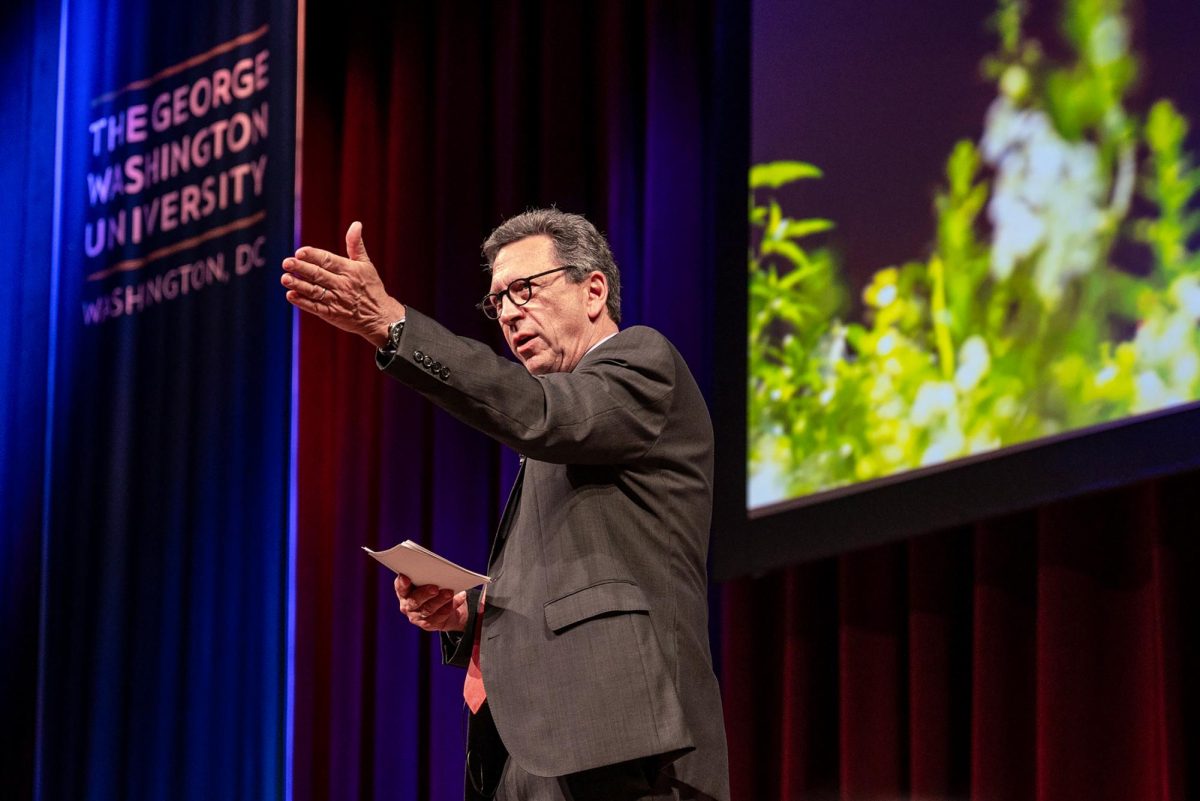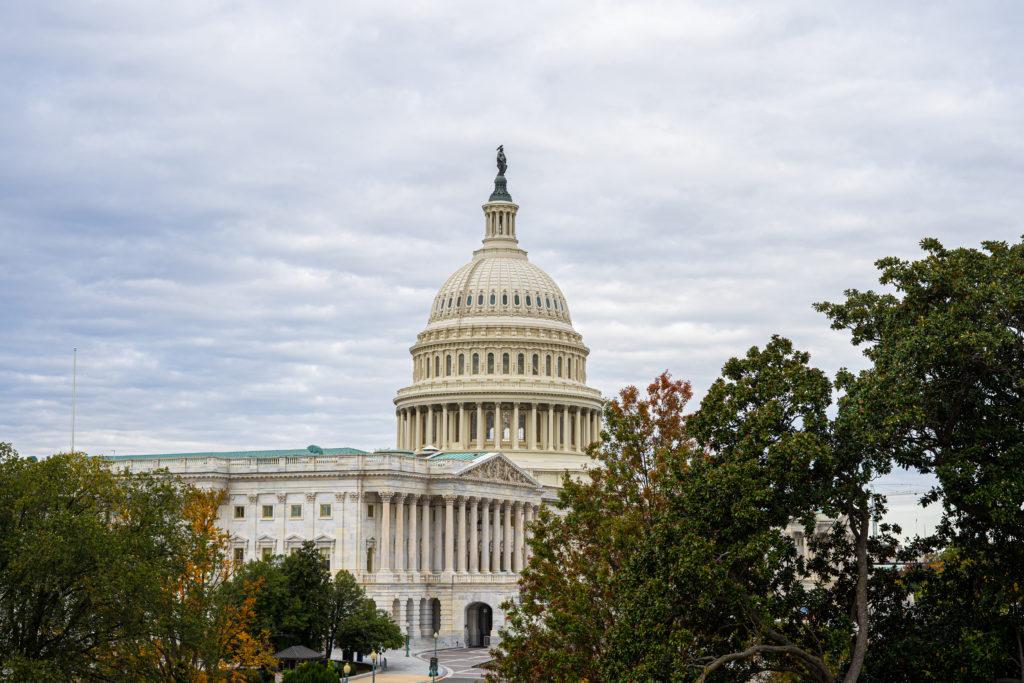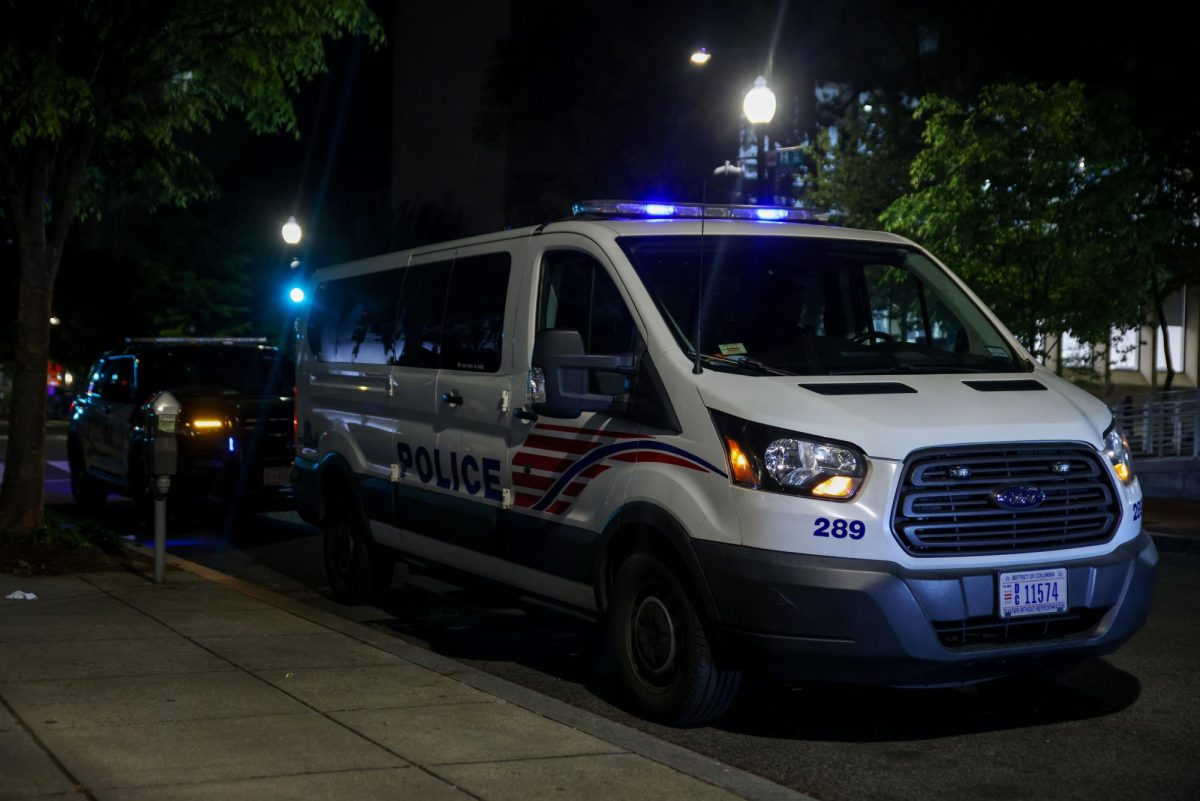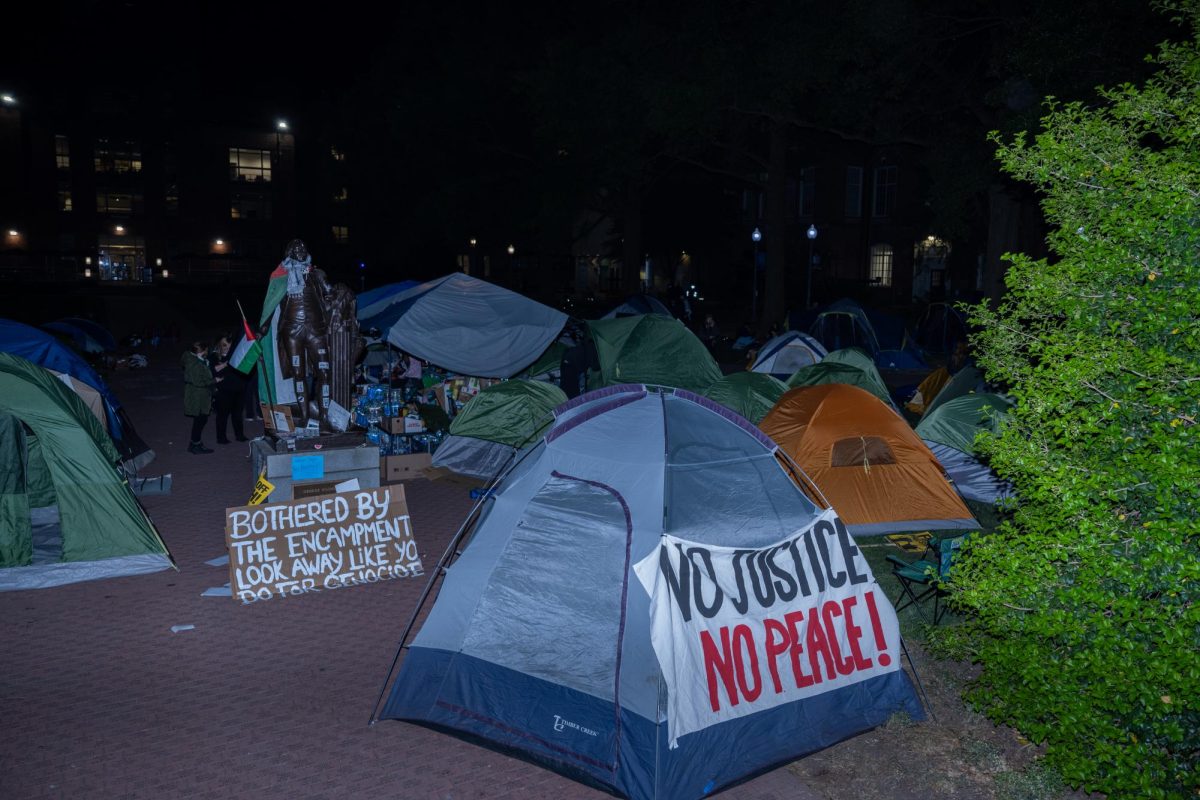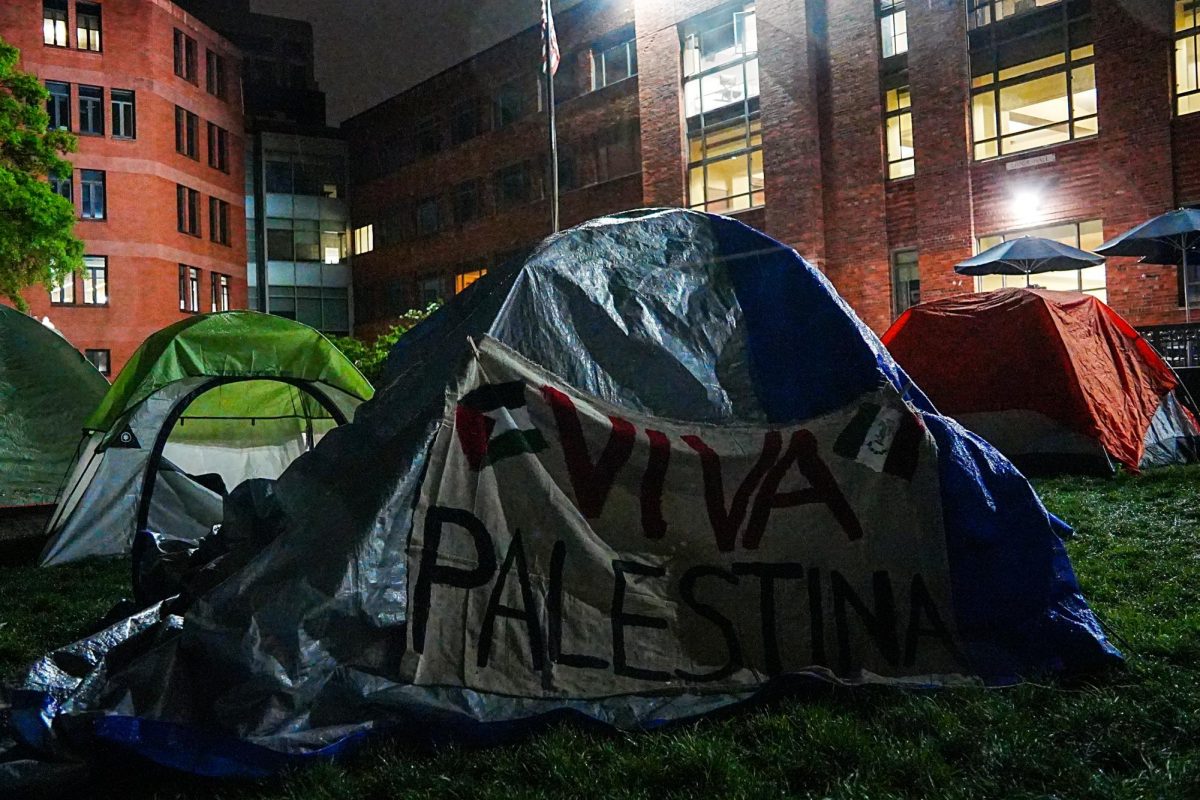An informal group of department chairs and program directors is in discussions with officials about enacting a “cluster hire” of underrepresented faculty and increasing funding for the Africana studies program.
Joined by faculty, the group is circulating a petition calling on administrators to hire 18 minority faculty members “primarily” in the Columbian College of Arts and Sciences and provide enough funding for the Africana studies program to convert into its own department with a permanent director within the next three years. Professors said conversations that began last summer about deficiencies in funding, faculty and support in the Africana studies program sparked their calls for a broader cluster hire in CCAS.
As of Monday, the petition had gathered almost 850 signatures.
Jennifer James, an associate professor of English and a former director of the Africana studies program, said CCAS has struggled to retain Black faculty members in the past. Black and Latino professors have cited the absence of a “robust” community for underrepresented faculty, the “chronically underfunded” Africana studies program and a “perceived lack of commitment” for Black and Latino studies as reasons for leaving GW, according to the petition.
“Our faculty should reflect the composition of our nation and our students but, instead, it is overwhelmingly White,” the petition states.
James said administrators should demonstrate their support for Black faculty members and students by listening to “longstanding” requests about onboarding more professors of color, especially in light of nationwide Black Lives Matter protests this summer.
She said without more faculty of color, GW misses out on opportunities to deliver a “premier education” that students deserve and that other universities with more diverse faculty can offer.
“Students are robbed of the chance to be exposed to the diverse perspectives and research faculty of color offer,” James said in an email.
James said she led the group of department chairs and program directors to draft and send an initial letter of their concerns to Provost Brian Blake and CCAS Dean Paul Wahlbeck last fall. She said she and other faculty hope officials may be receptive to their initiatives, based on a meeting they had with the dean’s office and email exchanges with the provost’s office.
“No promises have been made, but they are not the villains in this story,” she said. “In fact, both Provost Blake and Dean Wahlbeck have indicated that the recruitment and retention of faculty of color has been on their minds. We believe that we can work together to move GW into its future.”
Gordon Mantler, the executive director of the University Writing Program, said the GW community has been “enthusiastically” responding to the petition so far. He said many of GW’s peer schools have taken similar actions to support diversity within their faculty.
Seven of GW’s peer schools have implemented similar cluster hires during the pandemic, like the University of Pittsburgh, Northeastern University and the University of Miami.
“They all are taking on hiring efforts over several years, making a real commitment to this kind of effort and putting resources behind it, so we think that GW should be doing that as well,” Mantler said.
Mantler added that the petition will be formally sent to University President Thomas LeBlanc and Blake sometime later this month, but faculty have not yet decided when they will officially close the petition.
“I’m excited about the possibility of doing this and I just hope that despite all of the other challenges we’re facing, we don’t use budgets as an excuse not to do this and to make this happen,” he said.
Blake said at a Faculty Senate meeting in January that he is a “big fan” of cluster hires, but it would be “hard” to implement one this year because of the uncertainty of the fall semester.
“We’re probably not going to make those hires in that way during a pandemic, and as a matter of fact as we come out of this, hopefully during the summer, I think we can kind of look at the fall as the new hiring season to look at that proposal,” he said.
Officials implemented a hiring freeze across the University last March due to financial concerns regarding the pandemic. Faculty said the freeze has limited course offerings this semester because departments have been unable to hire as many part-time faculty.
LeBlanc and Blake announced last week that an external firm will conduct a diversity audit of GW this semester to assess and organize diversity-related reforms, using recommendations from the Black Student Union’s “State of GW” report. Officials said the study, which will be completed by late spring, will help officials develop an “action plan” to track GW’s progress of its diversity and inclusion efforts.
But Alexander Dent, the chair of the anthropology department, said administrators should not use the diversity audit as a diversion from tangible proposals, like the cluster hire.
He said faculty are already aware of the need to hire more Black and Latino faculty members. Underrepresented minority faculty have constituted about 8 to 9 percent of all tenured or tenure-track faculty over the past decade, according to the petition and institutional planning data.
“Given that we already know we need to diversify our faculty and don’t really need a study to tell us that – our petition contains the numbers – why not get started on the cluster hire while we’re looking at the problem in more detail?” he said.
LeBlanc said at a Board of Trustees meeting Friday that officials will not be “standing still” while the audit is underway this semester.
“We will continue to work with urgency on those areas that we already know require our attention, including faculty diversity, financial aid, policies and police engagement,” he said.


